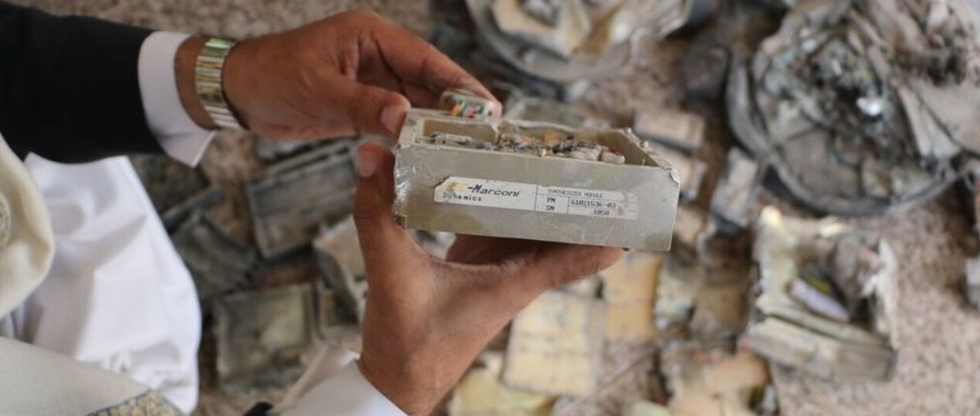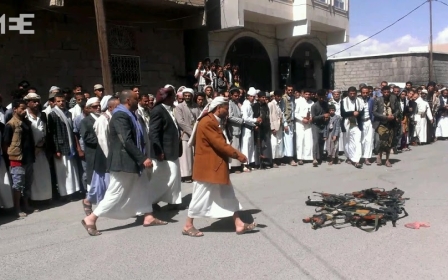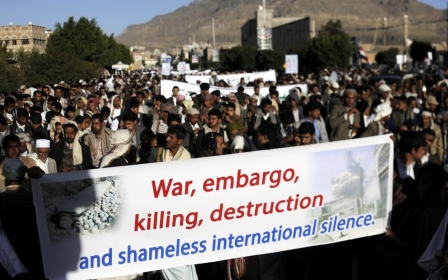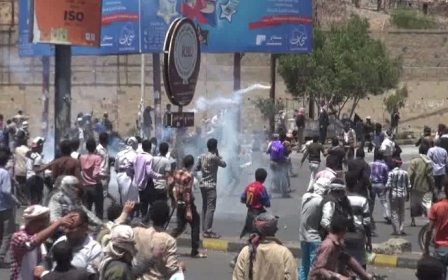UK rules out probe over British weapon used in Yemen air strike

The UK government will not launch a special probe into the use of its weapons in the Yemen war, despite reports that a UK-made missile destroyed a civilian factory in September in violation of international law.
A joint investigation by Amnesty International and Human Rights Watch published on Wednesday found that a ceramics factory in Yemen’s Sanaa governorate appeared to be producing only civilian goods when it was destroyed by a PGM-500 missile made by British firm Marconi.
One person was killed and two injured in the strike on 23 September.
The missile used in the strike was supplied in the 1990s, and armaments of its kind are in service with the UAE’s air force.
Witnesses told Amnesty International and HRW that the man killed in the strike, 28-year-old Abdel Karim al-Sawary, was hit by shrapnel as he fled the area.
At the time Sawary was working as a guard at a makeshift detention facility run by Houthi rebels, the probable target of the strike, which was 140 meters from the factory compound.
The four strikes that completely destroyed the factory left the nearby detention facility unscathed.
The strike did, however, cause minor damage to a nearby hospital.
Attacks such as these, which fail to distinguish between civilian and military targets, are a violation of international humanitarian law, according to the report.
The UAE and other regional powers including Qatar, Egypt and Morocco are part of a Saudi-led coalition that has been bombing Yemen for nine months, in an attempt to crush Houthi rebels who overran much of the country last September.
Both sides have been accused of large-scale human rights violations during the conflict, which has killed over 5,700 people, at least half of whom are thought to be civilians.
Earlier this month UK Defence Secretary Philip Hammond said he would halt UK arms sales to Saudi Arabia if the kingdom is found to have breached international law during the intervention.
“We need to see proper investigations,” Hammond told the BBC’s Newsnight programme.
Responding to fresh allegations that UK-made weapons were used in coalition strikes that breached international law, the British Foreign Office stressed that it operates “one of the most robust arms export control regimes in the world”.
However, asked whether the UK will now launch a specific investigation into the use of British-made weapons in Yemen, a spokesperson for the government instead said that it “monitors alleged international humanitarian law [IHL] violations”.
The spokesperson says the UK has “repeatedly received assurances of compliance with IHL” from Saudi Arabia, which is leading the coalition.
"We are offering advice and training to the Saudis to demonstrate best practice and to help ensure continued compliance with international humanitarian law.”
Middle East Eye propose une couverture et une analyse indépendantes et incomparables du Moyen-Orient, de l’Afrique du Nord et d’autres régions du monde. Pour en savoir plus sur la reprise de ce contenu et les frais qui s’appliquent, veuillez remplir ce formulaire [en anglais]. Pour en savoir plus sur MEE, cliquez ici [en anglais].




